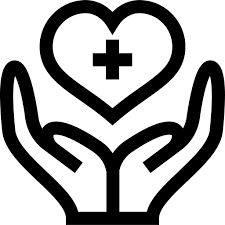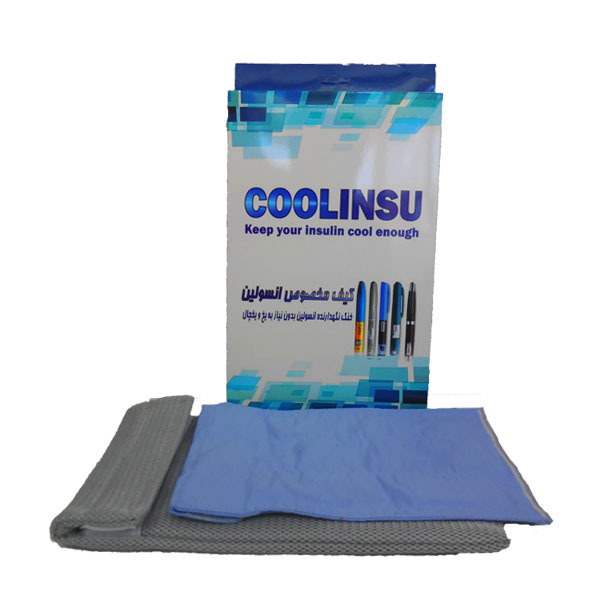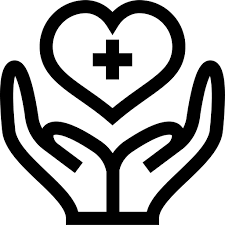Health & Medical
Health refers to a state of complete physical, mental, and social well-being, not merely the absence of disease or infirmity. It encompasses various factors, including lifestyle, genetics, environment, and access to healthcare services.
Medical, on the other hand, pertains to the field of medicine, which involves the study, diagnosis, treatment, and prevention of diseases and injuries. Medical practices aim to maintain or restore health and well-being.
In summary, health is a holistic state of well-being, while medical refers to the specific domain of healthcare and medicine that addresses illnesses and promotes overall health.
Healthcare involves the maintenance or improvement of health through the prevention, diagnosis, treatment, recovery, and management of illness, injuries, and other physical or mental conditions. Key aspects of healthcare include:
1. Primary Care: Basic and routine healthcare services provided by healthcare professionals like general practitioners, nurses, and family doctors.
2. Specialty Care: Specialized medical services offered by healthcare professionals with expertise in specific areas, such as cardiology, orthopedics, or neurology.
3. Preventive Care: Measures taken to prevent illnesses or detect them at an early stage, including vaccinations, screenings, and lifestyle interventions.
4. Emergency Care: Immediate and critical medical attention provided in emergency situations, often through emergency departments or urgent care facilities.
5. Mental Health Care: Services focused on mental and emotional well-being, including counseling, therapy, and psychiatric care.
6. Long-Term Care: Support and services for individuals with chronic conditions, disabilities, or the elderly who require assistance with daily activities.
7. Pharmaceuticals: Development, production, and distribution of medications to treat and manage various health conditions.
8. Health Insurance: Financial coverage and risk management for medical expenses, providing individuals with access to healthcare services.
9. Health Information Technology (HIT): Use of technology in healthcare for electronic health records, telemedicine, and other digital tools to enhance patient care.
10. Public Health: Initiatives and policies aimed at promoting overall community health, preventing diseases, and addressing public health challenges.
11. Global Health: Efforts to address health issues on a global scale, considering factors like infectious diseases, access to healthcare, and health disparities.
Effective healthcare systems encompass a combination of these components to provide comprehensive and accessible services to individuals and communities.
Baby care products are items specifically designed to meet the needs of infants and provide care for their well-being. These products address various aspects of a baby's daily routine, hygiene, and comfort. Here are some common categories of baby care products:
1. Diapers: Disposable or cloth diapers for maintaining hygiene and preventing diaper rash.
2. Baby Wipes: Gentle, hypoallergenic wipes for cleaning a baby's skin during diaper changes or for general hygiene.
3. Baby Clothing: Soft and comfortable clothing, including onesies, sleepers, hats, and socks.
4. Baby Skincare: Mild soaps, shampoos, lotions, and creams formulated for a baby's delicate skin.
5. Feeding Essentials: Baby bottles, formula, breast pumps, and feeding accessories for nursing or bottle-feeding.
6. Baby Food: Nutrient-rich purees, cereals, and snacks suitable for different stages of a baby's development.
7. Baby Gear: Items like strollers, car seats, high chairs, and baby carriers for convenience and safety.
8. Nursery Essentials: Cribs, changing tables, bedding, and decor for creating a safe and comfortable nursery.
9. Baby Monitors: Audio or video monitors for parents to keep an eye on their baby while they sleep or play.
10. Teething Products: Teething toys, rings, and soothing gels to ease discomfort during teething.
11. Healthcare Items: Thermometers, nasal aspirators, and baby-friendly first aid kits for monitoring health.
12. Toys and Entertainment: Age-appropriate toys and activities to stimulate a baby's senses and promote development.
13. Baby Proofing: Safety gates, outlet covers, and cabinet locks to childproof the home.
When selecting baby care products, it's essential to consider the baby's age, specific needs, and any potential sensitivities. Always follow safety guidelines and consult with healthcare professionals if needed.

Healthcare products encompass a wide range of items designed to promote health, well-being, and medical care. These products can be used for prevention, treatment, or management of various health conditions. Here are some common categories of healthcare products:
1. Vitamins and Supplements: Nutritional supplements to support overall health, such as vitamins, minerals, and herbal supplements.
2. Over-the-Counter (OTC) Medications: Non-prescription medications for common health issues, including pain relievers, cough and cold remedies, and allergy medications.
3. First Aid Supplies: Bandages, antiseptics, wound care products, and first aid kits for treating minor injuries.
4. Personal Care Products: Items like toothpaste, dental floss, mouthwash, and skincare products for maintaining personal hygiene.
5. Medical Devices: Products like blood pressure monitors, glucose meters, thermometers, and other devices for monitoring and managing health conditions.
6. Mobility Aids: Devices such as canes, walkers, crutches, and wheelchairs to assist individuals with mobility challenges.
7. Orthopedic Supports: Braces, splints, and compression garments for supporting and stabilizing injured or weakened body parts.
8. Home Health Care Equipment: Items like hospital beds, bedside commodes, and home care supplies to facilitate care at home.
9. Pregnancy and Fertility Products: Pregnancy tests, prenatal vitamins, and fertility aids for family planning and maternal health.
10. Fitness and Wellness Equipment: Exercise gear, fitness trackers, and wellness products to support an active and healthy lifestyle.
11. Aids for Daily Living: Products designed to assist individuals in performing daily activities independently, including adaptive utensils, reaching aids, and dressing aids.
12. Personal Protective Equipment (PPE): Face masks, gloves, and other protective gear to prevent the spread of infections.
13. Diagnostic Tools: Home testing kits for conditions such as pregnancy, ovulation, cholesterol, and blood glucose.
14. Vision and Hearing Aids: Glasses, contact lenses, hearing aids, and related accessories for sensory support.
15. Telehealth Solutions: Digital health tools, remote monitoring devices, and telemedicine services for virtual healthcare.
When using healthcare products, it's crucial to follow instructions, consider individual health needs, and seek professional advice when necessary. Always consult with healthcare providers for personalized guidance on health-related products and treatments.
Household medical devices are tools designed for home use to monitor health, manage medical conditions, or provide assistance in maintaining well-being. These devices are often user-friendly and can be used without professional medical supervision.

Here are some examples of household medical devices:
1. Blood Pressure Monitor: Measures blood pressure levels at home, helping individuals monitor and manage hypertension.
2. Thermometer: Used to measure body temperature and detect fever, often in digital or infrared formats.
3. Pulse Oximeter: Measures oxygen saturation levels in the blood, helpful for monitoring respiratory health.
4. Glucose Meter: Monitors blood glucose levels for individuals with diabetes to manage their condition.
5. Peak Flow Meter: Assists individuals with asthma in monitoring their lung function and managing symptoms.
6. Weight Scale: Measures body weight, aiding in weight management and tracking changes.
When using household medical devices, it's essential to follow the manufacturer's instructions, maintain them properly, and consult healthcare professionals as needed. Regular monitoring with these devices can empower individuals to take an active role in their health and well-being.
Medical, on the other hand, pertains to the field of medicine, which involves the study, diagnosis, treatment, and prevention of diseases and injuries. Medical practices aim to maintain or restore health and well-being.
In summary, health is a holistic state of well-being, while medical refers to the specific domain of healthcare and medicine that addresses illnesses and promotes overall health.
1. Primary Care: Basic and routine healthcare services provided by healthcare professionals like general practitioners, nurses, and family doctors.
2. Specialty Care: Specialized medical services offered by healthcare professionals with expertise in specific areas, such as cardiology, orthopedics, or neurology.
3. Preventive Care: Measures taken to prevent illnesses or detect them at an early stage, including vaccinations, screenings, and lifestyle interventions.
4. Emergency Care: Immediate and critical medical attention provided in emergency situations, often through emergency departments or urgent care facilities.
5. Mental Health Care: Services focused on mental and emotional well-being, including counseling, therapy, and psychiatric care.
6. Long-Term Care: Support and services for individuals with chronic conditions, disabilities, or the elderly who require assistance with daily activities.
7. Pharmaceuticals: Development, production, and distribution of medications to treat and manage various health conditions.
8. Health Insurance: Financial coverage and risk management for medical expenses, providing individuals with access to healthcare services.
9. Health Information Technology (HIT): Use of technology in healthcare for electronic health records, telemedicine, and other digital tools to enhance patient care.
10. Public Health: Initiatives and policies aimed at promoting overall community health, preventing diseases, and addressing public health challenges.
11. Global Health: Efforts to address health issues on a global scale, considering factors like infectious diseases, access to healthcare, and health disparities.
Baby care products are items specifically designed to meet the needs of infants and provide care for their well-being. These products address various aspects of a baby's daily routine, hygiene, and comfort. Here are some common categories of baby care products:
1. Diapers: Disposable or cloth diapers for maintaining hygiene and preventing diaper rash.
2. Baby Wipes: Gentle, hypoallergenic wipes for cleaning a baby's skin during diaper changes or for general hygiene.
3. Baby Clothing: Soft and comfortable clothing, including onesies, sleepers, hats, and socks.
4. Baby Skincare: Mild soaps, shampoos, lotions, and creams formulated for a baby's delicate skin.
5. Feeding Essentials: Baby bottles, formula, breast pumps, and feeding accessories for nursing or bottle-feeding.
6. Baby Food: Nutrient-rich purees, cereals, and snacks suitable for different stages of a baby's development.
7. Baby Gear: Items like strollers, car seats, high chairs, and baby carriers for convenience and safety.
8. Nursery Essentials: Cribs, changing tables, bedding, and decor for creating a safe and comfortable nursery.
9. Baby Monitors: Audio or video monitors for parents to keep an eye on their baby while they sleep or play.
10. Teething Products: Teething toys, rings, and soothing gels to ease discomfort during teething.
11. Healthcare Items: Thermometers, nasal aspirators, and baby-friendly first aid kits for monitoring health.
12. Toys and Entertainment: Age-appropriate toys and activities to stimulate a baby's senses and promote development.
13. Baby Proofing: Safety gates, outlet covers, and cabinet locks to childproof the home.
When selecting baby care products, it's essential to consider the baby's age, specific needs, and any potential sensitivities. Always follow safety guidelines and consult with healthcare professionals if needed.

Healthcare products encompass a wide range of items designed to promote health, well-being, and medical care. These products can be used for prevention, treatment, or management of various health conditions. Here are some common categories of healthcare products:
1. Vitamins and Supplements: Nutritional supplements to support overall health, such as vitamins, minerals, and herbal supplements.
2. Over-the-Counter (OTC) Medications: Non-prescription medications for common health issues, including pain relievers, cough and cold remedies, and allergy medications.
3. First Aid Supplies: Bandages, antiseptics, wound care products, and first aid kits for treating minor injuries.
4. Personal Care Products: Items like toothpaste, dental floss, mouthwash, and skincare products for maintaining personal hygiene.
5. Medical Devices: Products like blood pressure monitors, glucose meters, thermometers, and other devices for monitoring and managing health conditions.
6. Mobility Aids: Devices such as canes, walkers, crutches, and wheelchairs to assist individuals with mobility challenges.
7. Orthopedic Supports: Braces, splints, and compression garments for supporting and stabilizing injured or weakened body parts.
8. Home Health Care Equipment: Items like hospital beds, bedside commodes, and home care supplies to facilitate care at home.
9. Pregnancy and Fertility Products: Pregnancy tests, prenatal vitamins, and fertility aids for family planning and maternal health.
10. Fitness and Wellness Equipment: Exercise gear, fitness trackers, and wellness products to support an active and healthy lifestyle.
11. Aids for Daily Living: Products designed to assist individuals in performing daily activities independently, including adaptive utensils, reaching aids, and dressing aids.
12. Personal Protective Equipment (PPE): Face masks, gloves, and other protective gear to prevent the spread of infections.
13. Diagnostic Tools: Home testing kits for conditions such as pregnancy, ovulation, cholesterol, and blood glucose.
15. Telehealth Solutions: Digital health tools, remote monitoring devices, and telemedicine services for virtual healthcare.
When using healthcare products, it's crucial to follow instructions, consider individual health needs, and seek professional advice when necessary. Always consult with healthcare providers for personalized guidance on health-related products and treatments.
Household medical devices are tools designed for home use to monitor health, manage medical conditions, or provide assistance in maintaining well-being. These devices are often user-friendly and can be used without professional medical supervision.

1. Blood Pressure Monitor: Measures blood pressure levels at home, helping individuals monitor and manage hypertension.
2. Thermometer: Used to measure body temperature and detect fever, often in digital or infrared formats.
3. Pulse Oximeter: Measures oxygen saturation levels in the blood, helpful for monitoring respiratory health.
4. Glucose Meter: Monitors blood glucose levels for individuals with diabetes to manage their condition.
5. Peak Flow Meter: Assists individuals with asthma in monitoring their lung function and managing symptoms.
6. Weight Scale: Measures body weight, aiding in weight management and tracking changes.
When using household medical devices, it's essential to follow the manufacturer's instructions, maintain them properly, and consult healthcare professionals as needed. Regular monitoring with these devices can empower individuals to take an active role in their health and well-being.
FAQs
؟What is health
Health refers to a state of complete physical, mental, and social well-being, not merely the absence of disease or infirmity.
What is the most important thing in choosing child protection?
When selecting baby care products, it's essential to consider the baby's age, specific needs, and any potential sensitivities
? What are the most important things when using healthcare products,
When using healthcare products, it's crucial to follow instructions, consider individual health needs, and seek professional advice when necessary.
?What Uses of Blood Pressure Monitor
Measures blood pressure levels at home, helping individuals monitor and manage hypertension.






